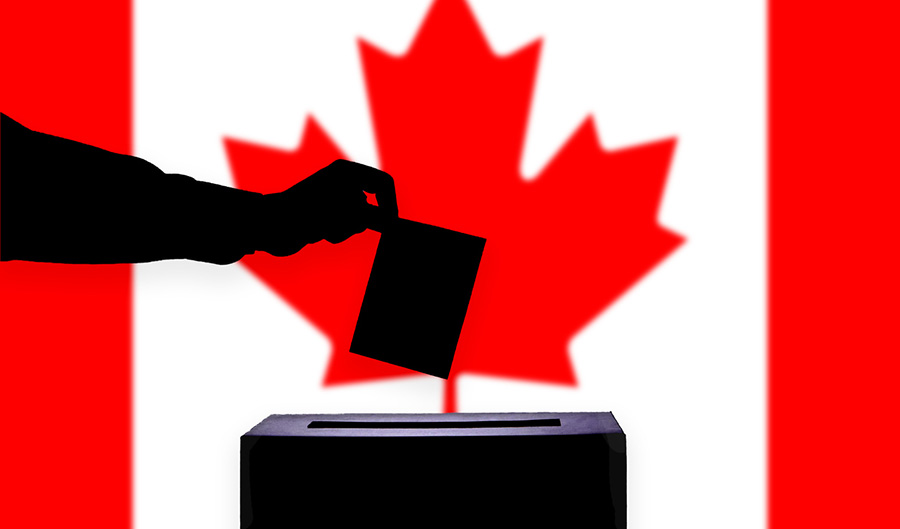Do Elections Affect the Stock Market?
Written by Tamar Satov
Published on October 1, 2019
minute read
Share:
With Canada heading to the polls on October 21, you may be wondering what effect the election could have on your investment portfolio. After all, any kind of doubt surrounding political events, economic news, corporate changes and more can often impact the market, at least in the short term.
While past stock market behaviour is no guarantee of future behaviour, we thought we'd dig into some research on previous market reactions to Canadian elections, other political news and even social media posts to see what has played out historically. Here's a bit of what we found.
1. Markets (not surprisingly) like the end of uncertainty
A 1993 paper by the Political Economy Research Group at the University of Western Ontario examined stock market performance during and after all nine federal elections held in Canada between 1960 and 1992. It found that markets rose during the month of Canadian elections, regardless of which party was the victor, indicating that markets appear to react favourably to the resolution of uncertainty rather than to specific party platforms. It also found little variation in market performance or volatility between minority or majority governments.
2. Diversified portfolios provide cushion
A Canadian study published in 2005 examined whether news about the possible separation of Quebec from Canada affected market volatility between 1990 and 1996. (This period includes the rejection of the Meech Lake Accord in 1990, the referendum on the Charlottetown Accord in 1992, the re-election of the Parti Quebecois in 1994 and the second referendum on Quebec independence in 1995.)
The study found that the political risk associated with a possible independence of Quebec did affect the volatility of some individual stocks, depending on the nature of the firm's assets and the level of its international activities. However, it did not find a link between the political news and overall returns or risk in the investment portfolios studied. This suggests — as many experts proclaim — that a diversified asset allocation can help investors weather volatility, be it from political uncertainty or other market factors.
3. The market is quick to react, but also quick to forget
It's clear that U.S. President Donald Trump is a fan of social-media posts to get his message out. According to reports, from the time he was a leading candidate until the end of this summer, he's tweeted over 14,000 times. And depending on what he's posting about, markets can often move in response.
In August, for example, markets plunged after the president tweeted that he planned to implement hefty tariffs on imports from China tariffs. In recent months, volatility has tended to coincide with tweets about trade and monetary policy.
Still, in the aftermath of market-sinking tweets, research has shown that markets rebounded quickly, making up lost ground in under two months following each drop.
So, what does all this mean to you and your portfolio? Well, that depends.
If you've determined a strategic, long-term asset allocation that matches your risk tolerance, you may feel comfortable riding out short term volatility/bumps in the market.
Check out 3 Ways to Keep Emotions in Check When Investing for additional pointers on keeping emotions out of your investing decisions.
RBC Direct Investing Inc. and Royal Bank of Canada are separate corporate entities which are affiliated. RBC Direct Investing Inc. is a wholly owned subsidiary of Royal Bank of Canada and is a Member of the Canadian Investment Regulatory Organization and the Canadian Investor Protection Fund. Royal Bank of Canada and certain of its issuers are related to RBC Direct Investing Inc. RBC Direct Investing Inc. does not provide investment advice or recommendations regarding the purchase or sale of any securities. Investors are responsible for their own investment decisions. RBC Direct Investing is a business name used by RBC Direct Investing Inc. ® / ™ Trademark(s) of Royal Bank of Canada. RBC and Royal Bank are registered trademarks of Royal Bank of Canada. Used under licence.
© Royal Bank of Canada 2025.
Any information, opinions or views provided in this document, including hyperlinks to the RBC Direct Investing Inc. website or the websites of its affiliates or third parties, are for your general information only, and are not intended to provide legal, investment, financial, accounting, tax or other professional advice. While information presented is believed to be factual and current, its accuracy is not guaranteed and it should not be regarded as a complete analysis of the subjects discussed. All expressions of opinion reflect the judgment of the author(s) as of the date of publication and are subject to change. No endorsement of any third parties or their advice, opinions, information, products or services is expressly given or implied by RBC Direct Investing Inc. or its affiliates. You should consult with your advisor before taking any action based upon the information contained in this document.
Furthermore, the products, services and securities referred to in this publication are only available in Canada and other jurisdictions where they may be legally offered for sale. Information available on the RBC Direct Investing website is intended for access by residents of Canada only, and should not be accessed from any jurisdiction outside Canada.
Explore More

7 Ways to Get Ahead Financially in 2026
How you might invigorate your finances and put your money to work more intentionally this year
minute read

Economic Outlook: Uncertainty is Here to Stay, So What's Next?
Takeaways from the Economic Club of Canada’s Annual Event
minute read

3 things: Week of December 15
What the Inspired Investor team is watching this week
minute read
Inspired Investor brings you personal stories, timely information and expert insights to empower your investment decisions. Visit About Us to find out more.







